Get the latest financial news, insights and expert analysis from our award-winning MoneyWeek team, to help you understand what really matters when it comes to your finances.
You are now subscribed
Your newsletter sign-up was successful
Want to add more newsletters?

Twice daily
MoneyWeek
Get the latest financial news, insights and expert analysis from our award-winning MoneyWeek team, to help you understand what really matters when it comes to your finances.

Four times a week
Look After My Bills
Sign up to our free money-saving newsletter, filled with the latest news and expert advice to help you find the best tips and deals for managing your bills. Start saving today!

Around 12,000 small shareholders in troubled Russia-focused gold miner Petropavlovsk will see the company cease to exist and their entire investment wiped out unless they vote in favour of a £155m rights issue next Thursday, warns Peter Hambro, the company's chairman.
Together with a new $100m convertible bond which bondholders have pretty much already agreed to the 5p per share 157-for-ten rights issue aims to cut the company's $920m net debt to around $700m. Hambro and his colleagues at Petropavlovsk are personally underwriting the issue.
Having risen to the dizzy heights of 1,365p in April 2010, the company's share price has slumped nearly 100% to just 15.6p, giving a market cap of £30.5m.
MoneyWeek
Subscribe to MoneyWeek today and get your first six magazine issues absolutely FREE

Sign up to Money Morning
Don't miss the latest investment and personal finances news, market analysis, plus money-saving tips with our free twice-daily newsletter
Don't miss the latest investment and personal finances news, market analysis, plus money-saving tips with our free twice-daily newsletter
What went wrong?
The collapse in gold prices since September 2011 didn't help, and nor did an ill-timed, aggressive, debt-financed expansion of capacity of its mines in the icy, far eastern Amur region of Russia.
However, if you've held on to the shares to this point, then it seems a mistake not to take up the rights if you don't, your entire holding could be wiped out.
And this is what concerns Hambro. Petropavlovsk has an unusually high number of retail shareholders the company reckons they account for around 33% of the shareholder register and Hambro suspects that many are not even aware that they need to take action.
He fears the lack of awareness over the rights issue extends to institutions themselves, citing a conversation very recently with the chief executive of a retail broker: "I pointed out to him that his [Petropavlovsk] clients probably held all their shares in nominee accounts and they needed to vote. His response was "do they?""
Hambro says it is critical shareholders appreciate that they can vote in favour of the issue at no cost; they will, if all goes well, have the option of selling their rights on the open market as of Friday 27 February, the day after the votes are counted. For the vote to be a success, 75% of those casting must vote in favour.
"The most important thing for the shareholders is to get on the telephone to wherever they bought the shares from and say I want to vote in favour. If they don't vote in favour it wipes out the company: it's as simple as that. It's their company and if they don't vote they are going to lose it.
"All the restructuring we have done depends on this vote. They can trade their rights issue if they want to. There will be some value to be had if they want to sell them."
With the company so heavily out of favour, shareholders might understandably believe that the value of even the rights on the open market will be negligible. But Hambro thinks there is a reasonable chance that there will be demand for them.
He points out that the stock has fallen out of the reckoning of index trackers because its market cap is too small and its shares have fallen so heavily. But if the refinancing is completed successfully, these trackers might well look at Petropavlovsk again, decide they should look to regain some exposure to it, and consider the nil paid rights as a cheap means of re-entry.

"Don't blame management, blame the short-sellers"
Many Petropavlovsk shareholders are, not surprisingly, furious with management, with Hambro a prime target for their ire. There are several reasons for the company's fall from grace.
Hambro himself is particularly exercised by the impact that short-selling has had: "The people who have the short position at one point it accounted for 30% of the stock have made life difficult for us because if the share price keeps going down and down, banks get worried, the convertible bond holders get worried, and the people who are short of the stock make a fortune. I know the investor bulletin boards are very rude about me, they think I'm responsible for it all, but it's actually people who are short the stock."
He estimates that currently 7% of the stock is being shorted.
That said, Hambro concedes that the company's problems really began in 2011. From being a company with little debt, it suddenly took on $1bn to finance expansion of its mines. "We took the view that what was really important was to produce gold. And to do that we had to develop not just the Pokrovskiy mine, where we started, but also the underdeveloped Pioneer, Malomir and Albyn assets. And we borrowed the money to do that: we now move the cubic capacity of Buckingham Palace every 90 minutes."
The management's confidence on outlook was based on rising gold prices: "I thought it would go to $2,000/oz and it reached $1,930/oz: I was absolutely spot on about that. Also, our margins were excellent: our costs then were just over $1,000/oz and we were clearing $900/oz. We did not see the point of funding it [ourselves] because every year we were making near $1,000 per ounce and it did not look as if the gold price would come back."
Hambro points out that Petropavlovsk began life in 1994 with very little production and managed to raise output every year. "We have now produced five million ounces of gold since we started in 1994, with a market value at today's prices of $6bn for that gold. And we built these mines: they are huge. Pokrovskiy is still going but it's ageing and the others needed developing. That means build new plant, put in roads and so on it's pretty substantial capex, and that is where the money went."
The collapse in the price of gold that began in late 2011, however, has led to heavy write offs: "But that does not matter, what matters is the margin. Margin is the key."
The company has already publically stated that it expects to produce 680,000-700,000 ounces annually at costs of below $700/oz. That is versus a gold price today of around $1,230/oz, which suggests a very good margin of $500/oz.
Will investors get behind Petropavlovsk again?
But whether the company's projections and confidence in generating a turnaround are enough to assuage investors, and convince them to vote in favour of the rights issue, is very uncertain.
Hambro says: "I appreciate there is a lot of anger out there, I read it, but I do feel the anger is misplaced. We didn't steal the money. The gold price collapsed under our feet. We hedged pretty soon after that and locked in a lot of extra money, and we have turned the company around completely. I believe we have done a fantastic job in that respect.
"You can say anything you like about me but I made a promise at last year's AGM that all the shareholders would have the chance to get in on the refinancing. I wasn't going to let anybody get in there in front of them and they haven't. Now it's up to shareholders and there is nothing more honourable I can do than that.
"I have agreed to put a big chunk of my own money to help underwrite the issue, to make the refinancing a success. I shouldn't be criticised for that. I can't control the gold price, it's not my job. What I can do is control costs and we have slashed costs dramatically in response to the gold price.
"The costs have come down from $1,100 to below $700. Some of that is down to the rouble but the margin, the gross difference between gross selling and gross costs has stayed the same at 500 bucks."
There have been some suggestions that management took its eye off the ball around 2011, especially with the departure of Petropavlovsk co-founder and chief executive Pavel Maslovskiy that year. Maslovskiy left to enter politics, joining the Russian Senate, but last October he rejoined the company in its hour of need.
Hambro rejects suggestions that Maslovskiy's departure was a big negative: "Pavel going into politics was not unhelpful in my view. We are spending a huge of time, effort and money in that part of the world. We are now one of 200 companies in Russia considered to be strategically important to the country. That means the government will ensure we are OK."
"We didn't take our eye off the ball"
"It's not fair to say we took our eye off the ball. It's the gold price that scuppered us. And then bond holders going short. I remember clearly going to see one bond holder when our problems started and he said quite bluntly: I got into this thing in order to take the company.'
"People out there who write the rule books don't understand that is how it is. There is no doubt issuing convertible bonds is not a good idea. We could have gone to the shareholders, asked them to help out with the money but clearly they would have said they don't want to put the money in, and we would not have been capable of the producing the gold we are doing at the margin we are, if we had not had that money.
"If there is no equity money about and you want to build a big mining company what do you do? You get the money where you can, and banks and bondholders were the places to go. It did not turn out to be the best way to do it, but as long as we survive and the business is doing what it is supposed to in that sense we are through the pain threshold. There is everything to fight for here.
"So I find it unreasonable to be criticised, people who are angry ought to come and see, sit here and watch what it's like. And if they think I'm screwing up, then that's fine, but to sit somewhere in an armchair it's a bit much. Yes, there is anger but on what basis could you be angry? Look how much money has been written off my net worth. I would not do that on purpose would I?"
"Every single vote counts"
He assures shareholders that management discussed with "a huge number of people" alternative ways of trying to solve the company's problems. But there was never any opportunity presented that protected shareholders' rights not to be diluted unwillingly, for them not to be part of the refinancing package: "That is the promise I have honoured from that AGM day last year onwards.
"The bottom line is if they want to, they have the opportunity of taking up their rights, but it's all underwritten. I am not asking them to do anything more than we are; actually we are asking them to do less. But in order for everybody to survive they have got to say yes' - that's all they have to do. If any of them feel they don't want to throw good money after bad', well, that is their interpretation and their choice."
I ask Hambro what will happen if he does not get that all-important yes'. He gestures, slitting his throat: "The liquidators move in pretty quickly. Very simple. As far as the shareholders are concerned the company will cease to exist. We absolutely need 75% of those voting to vote in favour: every single vote counts."

What the brokers say
Among analysts, SP Angel's John Meyer believes Petropavlovsk's predicament reflects management's belief as highlighted by Hambro himself that the company would have little difficulty refinancing the debt it took on in 2011 and that it would continue to grow the business.
He adds: "The banks had no problem lending to the company based on its cash flow and performance till [Western] sanctions exacerbated the bank liquidity crisis in Russia. Chinese banks appear to have been equally unhelpful."
Meyer also believes Masolvskiy's departure in 2011 was another key factor contributing to the company's problems: "Maslovskiy left the business in the hands of the chief geologist, which led to over-ambitious production targets, causing the company to focus on production at the expense of costs and operating margins. He in turn was eventually replaced by Martin Smith, who is well respected, but the damage had been done and the company has been fighting to repay its debt obligations ever since. "
A key issue that has exercised Petropavlovsk shareholders in recent years has been rising production costs. But Meyer points that this has been the case with other gold miners too: "Investors across the sector are justifiably angry at the lack of cost control on the ground."
In Petropavlovsk's case, Meyer says costs appear to have risen from the time when Maslovskiy left the board to become a Russian senator. "Now he is back we expect new cost discipline, along with a weaker rouble, to dramatically cut Petropavlovsk's unit production costs."
Meyer believes the company has a credible plan for moving forward, as supported by Bank of America in the rights issue document. He adds: "We are recommending shareholders buy the rights issue. Our valuation is suspended pending further information from the company on how it will achieve its new target gold production. The company have promised to give us some information to justify their new production forecasts."
Get the latest financial news, insights and expert analysis from our award-winning MoneyWeek team, to help you understand what really matters when it comes to your finances.
Kam is a former deputy editor at Hemscott Invest and online editor, City A.M and he was also previously the Digital Editor at IFA Magazine. Kam is currently a senior journalist at The Global Treasurer and contributes to MoneyWeek. Kam shares expertise on the FTSE 100, investing and global stocks.
-
 Should you buy an active ETF?
Should you buy an active ETF?ETFs are often mischaracterised as passive products, but they can be a convenient way to add active management to your portfolio
-
 Power up your pension before 5 April – easy ways to save before the tax year end
Power up your pension before 5 April – easy ways to save before the tax year endWith the end of the tax year looming, pension savers currently have a window to review and maximise what’s going into their retirement funds – we look at how
-
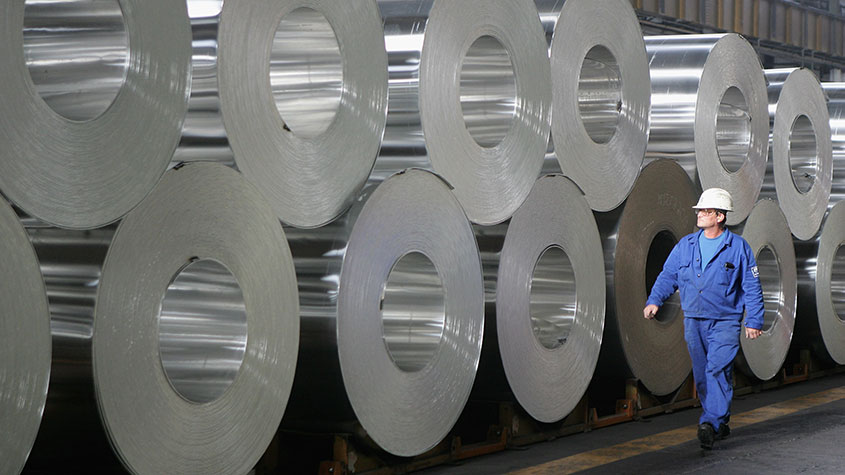 These 2 stocks are set to soar
These 2 stocks are set to soarTips The returns from these two aluminium and tin stocks could be spectacular when the commodity cycle turns says David J Stevenson.
-
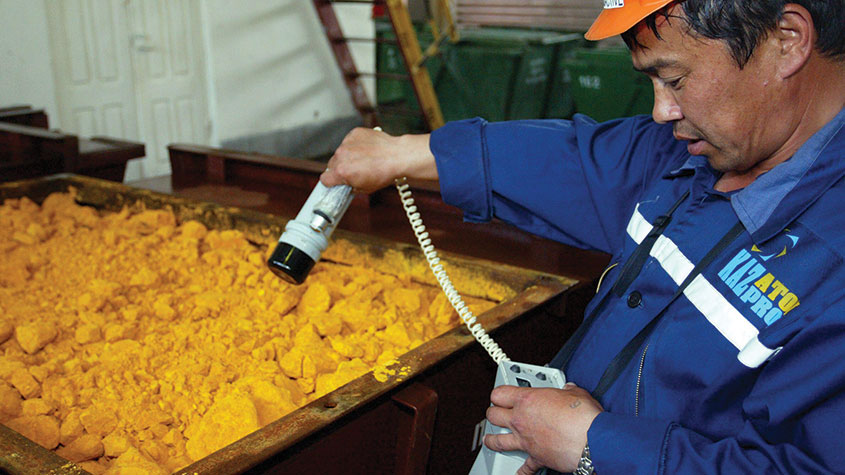 The best ways to buy strategic metals
The best ways to buy strategic metalsTips Weaker prices for strategic metals in the alternative-energy sector are an investment opportunity, says David Stevenson. Here, he picks some of the best ways to buy in.
-
 A lesson for investors from a ill-fated silver mine
A lesson for investors from a ill-fated silver mineAnalysis Mining methods may have changed since the industry’s early days, but the business hasn’t – digging ore from the ground and selling it at a profit. The trouble is, says Dominic Frisby, the scams haven't changed either.
-
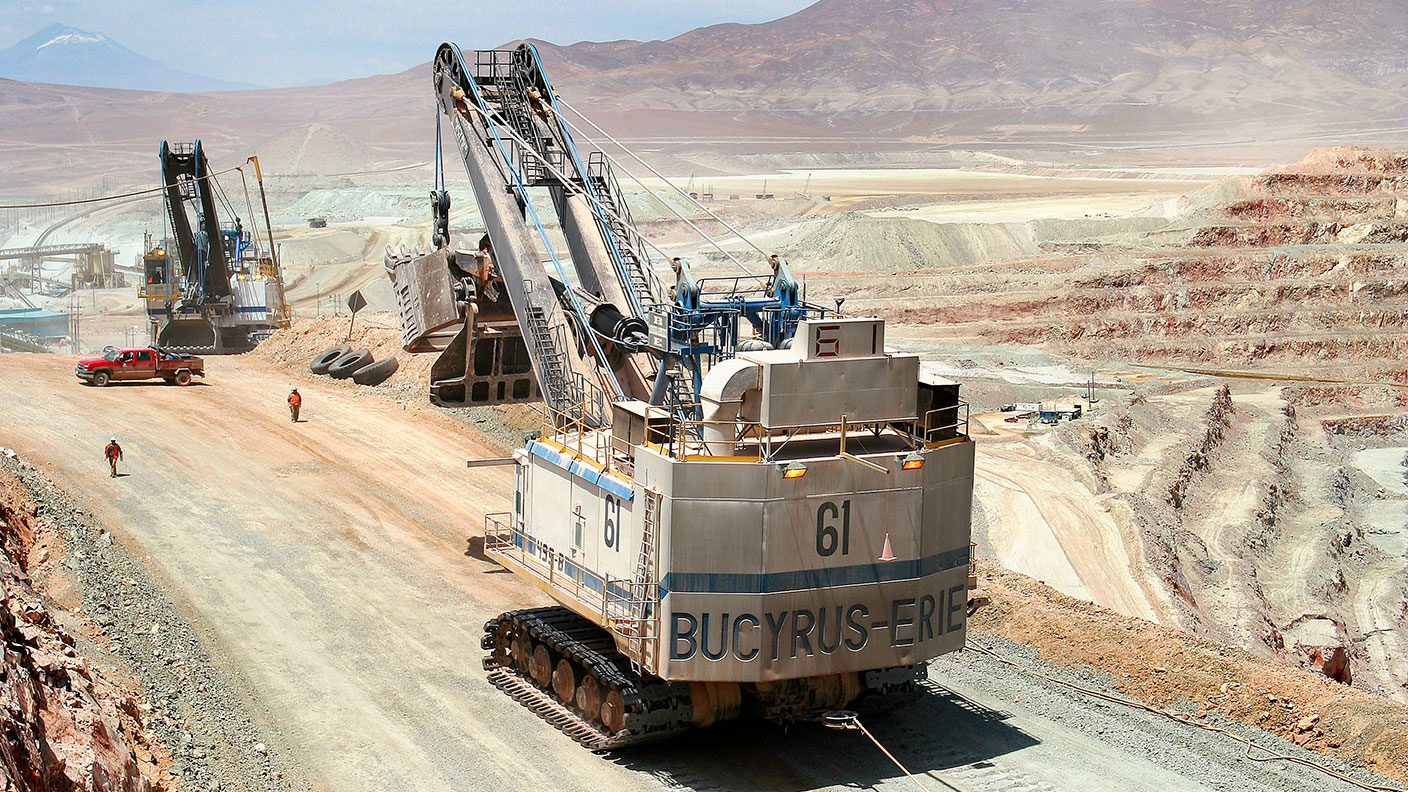 The natural resources industry is in a tight spot – which is bad news for the rest of us
The natural resources industry is in a tight spot – which is bad news for the rest of usOpinion The natural resources industry is in a bind. We need it to produce more energy and metals, but it has been starved of investment, plagued by supply chain issues, and hobbled by red tape. That’s bad news for everyone, says Dominic Frisby.
-
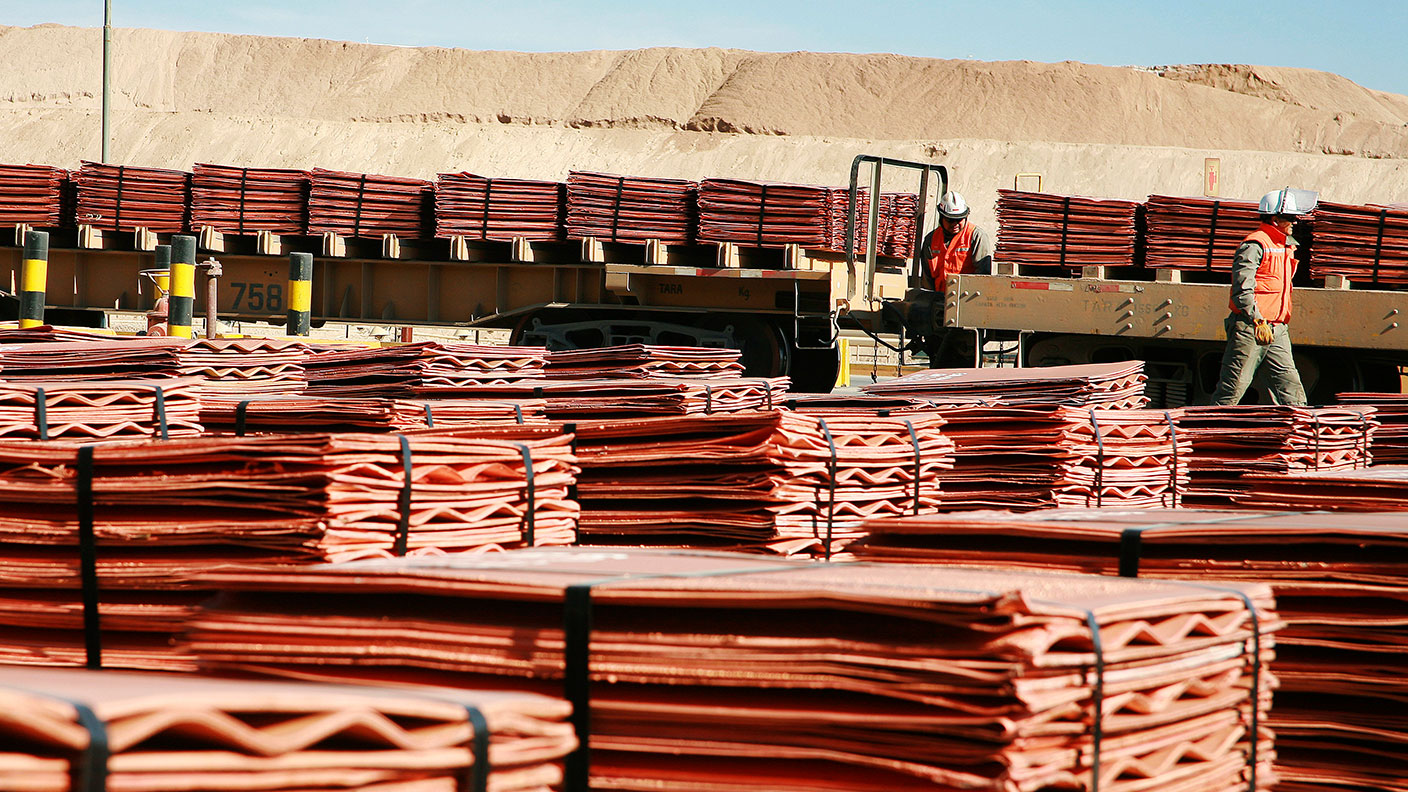 How to invest in the copper boom
How to invest in the copper boomTips The price of copper has slipped recently. But that’s temporary – the long-term outlook is very bullish, says Dominic Frisby. Here, he explains the best ways to invest in copper.
-
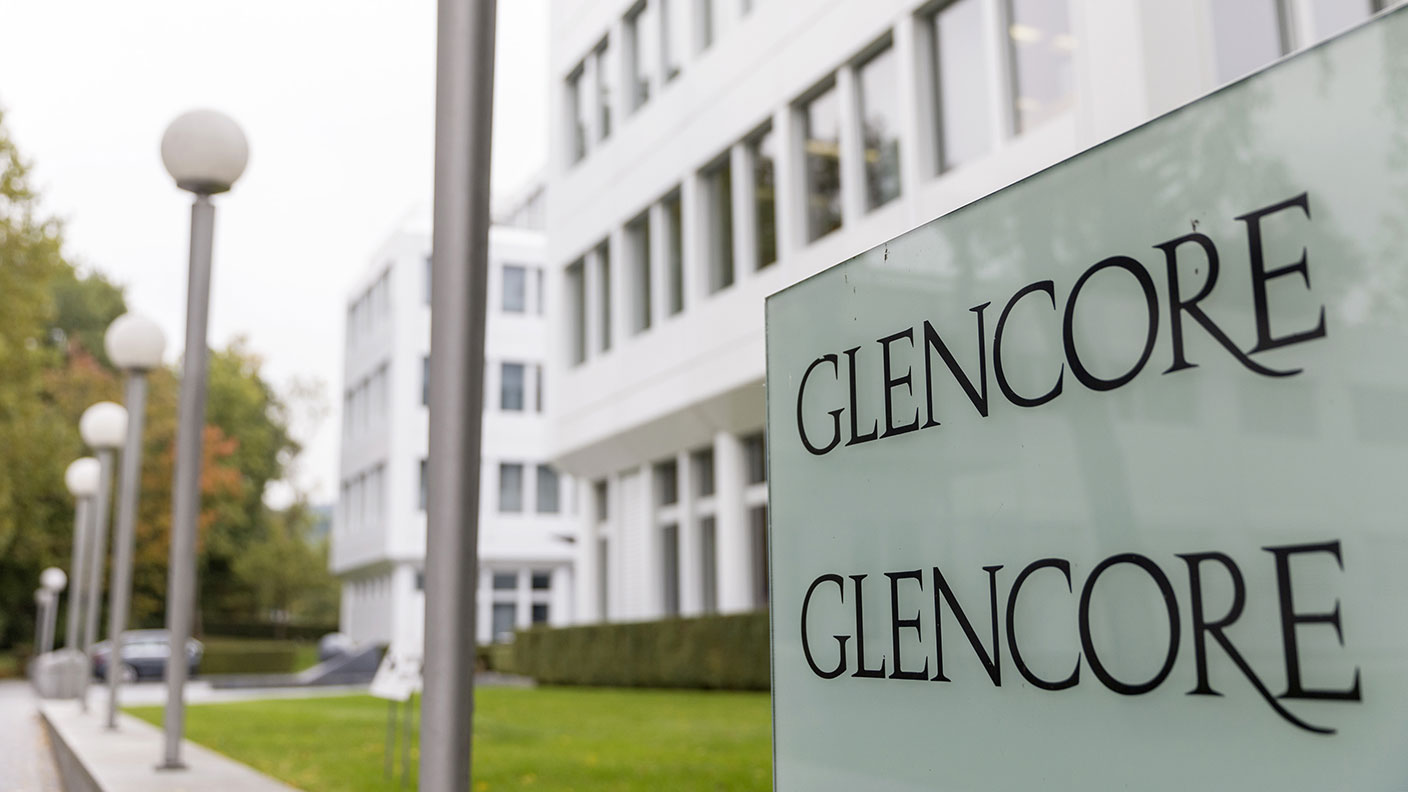 Why investors should consider adding Glencore to their portfolios
Why investors should consider adding Glencore to their portfoliosTips Commodities giant Glencore is well placed to capitalise on rising commodity prices and supply chain disruption, says Rupert Hargreaves. Here’s why you should consider buying Glencore shares.
-
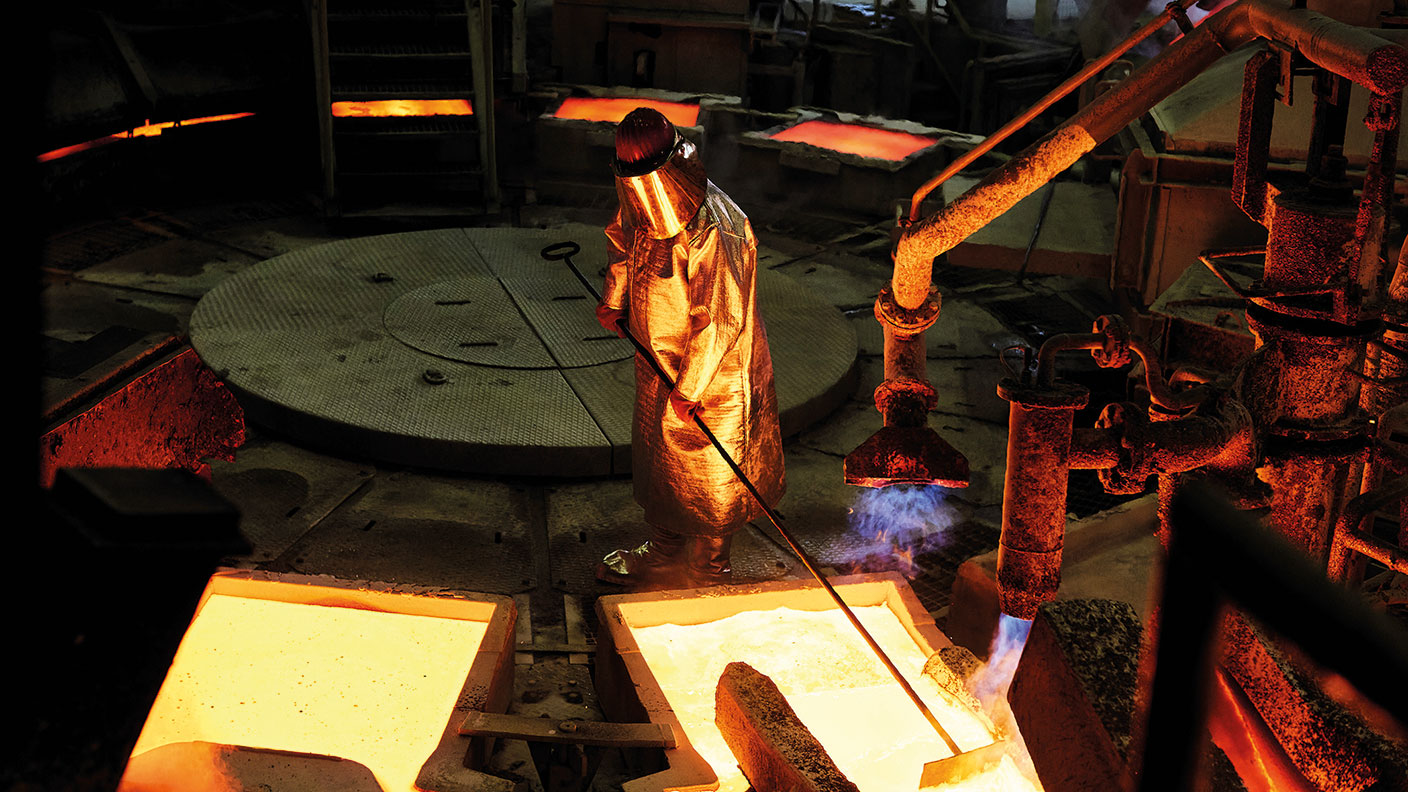 How to invest in the multi-decade boom in industrial metals
How to invest in the multi-decade boom in industrial metalsTips The price of key industrial metals has already begun to rise. The renewable energy transition will take them higher, says David Stevenson. Here's how to profit.
-
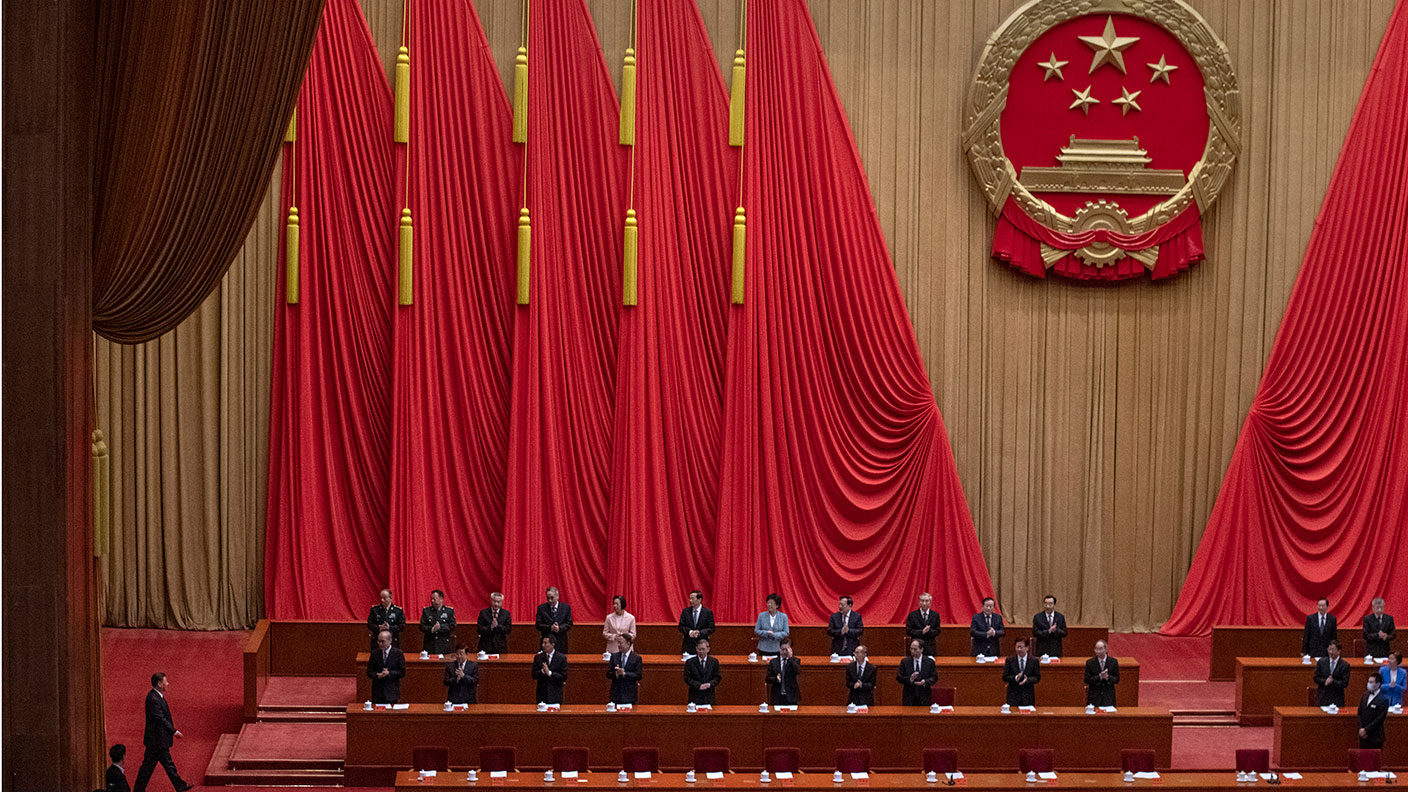 Avoid China’s stockmarket – here’s what to invest in instead
Avoid China’s stockmarket – here’s what to invest in insteadOpinion China’s stockmarket is not a good place for investors to be. But you can't just ignore the world's second-largest economy, says Dominic Frisby. Here, he picks an alternative China play.

